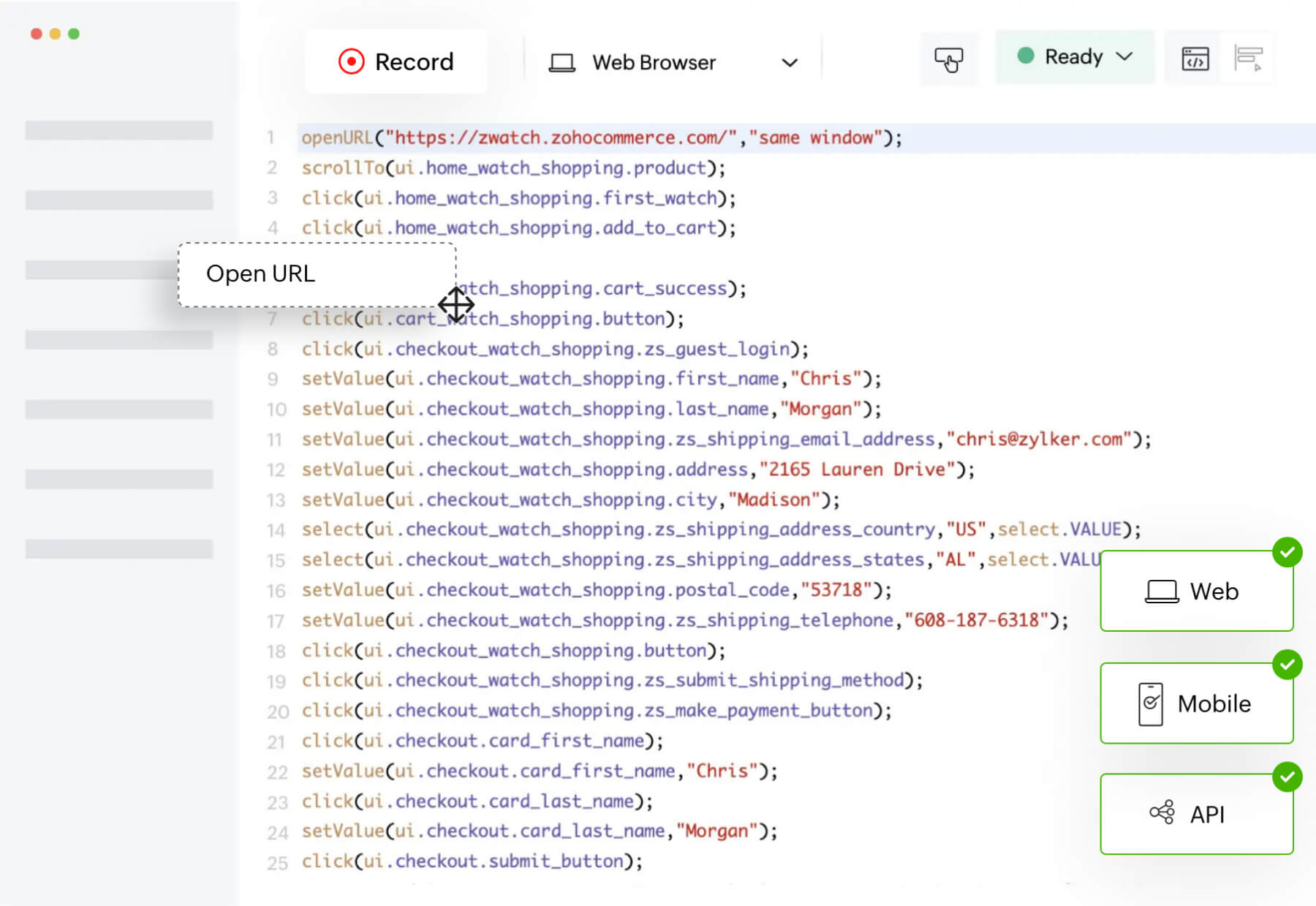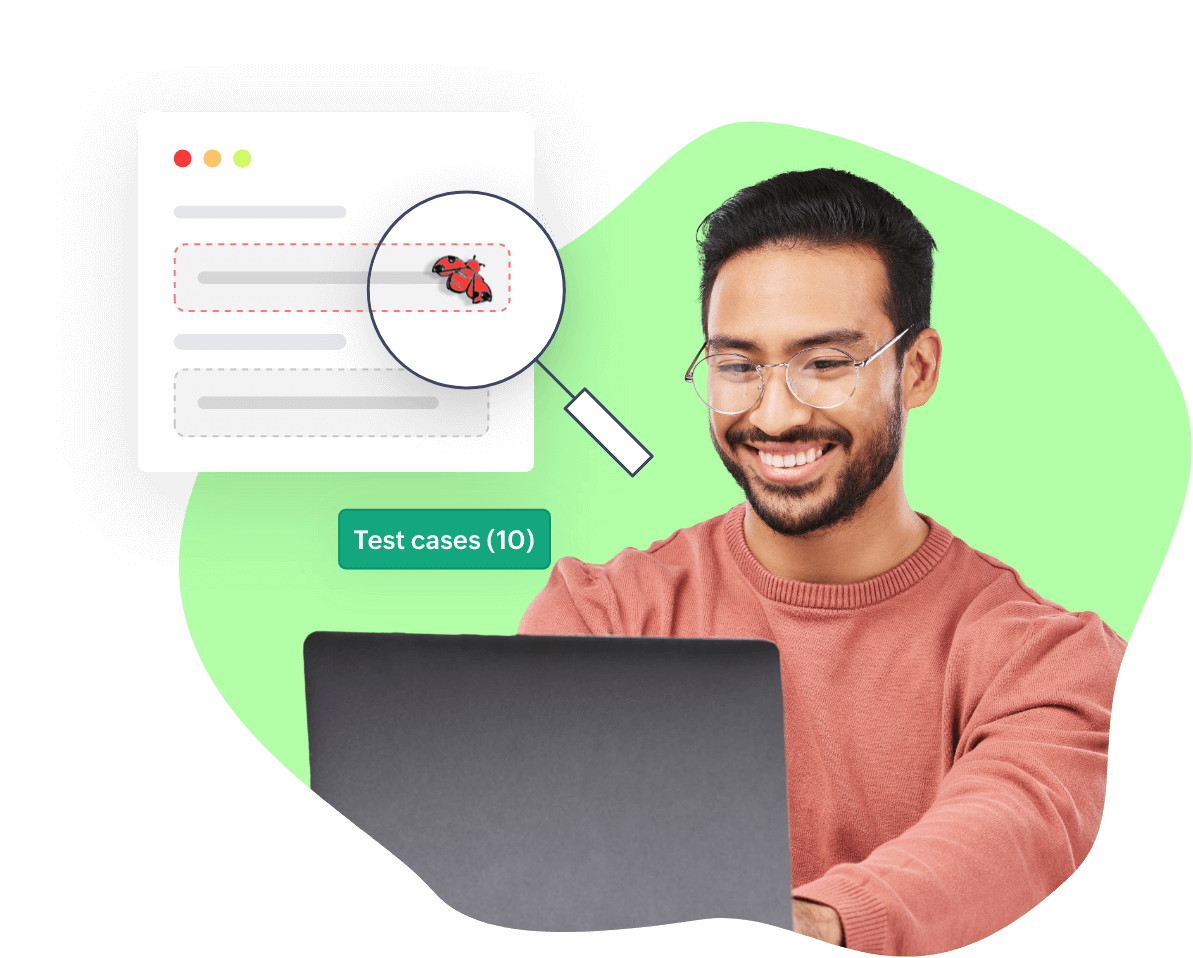Testing applications in enterprise IT vs SMBs
Applications built for small and medium businesses (SMBs) usually cater to mainstream requirements, which are easier to accomplish. Applications built for enterprises, on the other hand, must handle a huge customer base and involve complex workflows for advanced functionalities. This equates to a lengthy software development life cycle (SDLC), which in turn means longer testing times.
Understanding the differences between applications for enterprises and SMBs can provide a deeper insight into the differences employed in testing for each.
Zoho QEngine for enterprise application testing
Next-gen enterprise application testing is inefficient when using generic testing tools that come bundled with bloated sets of features. With a shorter learning curve and a well-balanced suite of advanced features, Zoho QEngine can help your team accelerate the testing of modern enterprise applications.

Compatible with your growing needs
- Web testing - PWAs and websites
- Mobile testing - Android- and iOS-native mobile applications
- API testing - Integrations and microservices
API-centric applications have also grown in popularity, and many modern enterprise applications rely on open source libraries and packages. Zoho QEngine is a robust automation testing tool that can handle the many types of testing needed to enable a polished user experience.

Features that optimize the testing phase
- No-code recorder - Accurately track user actions and elements
- Low-code builder - Drag and drop actions with predefined syntax
- Pro-code editor - Create test cases with a familiar syntax
Apart from progressive web applications (PWAs), API-centric applications have also grown in popularity, and many modern enterprise applications rely on open source libraries and packages. Zoho QEngine is a robust automation testing tool that can handle the many types of testing needed to enable a polished user experience.

Track and document errors for superior testing performance
Handling bugs during the production phase is critical and time-sensitive, especially for enterprise applications. Zoho QEngine can ensure faster test case creation and execution—and after fixes from the development team, retesting can be performed swiftly.

Get started today!
Create, develop, manage and execute automated functional tests while collaborating with your team. Zoho QEngine's test automation software is everything you need to run your entire testing lifecycle.
Frequently asked questions
How can Zoho QEngine help a SaaS-focused business that already has a suite of enterprise applications?
Multiple enterprise applications can be tested simultaneously with Zoho QEngine's parallel testing feature, to expedite the testing process of each.
Can enterprise applications built using no-code/low-code platforms be tested using Zoho QEngine?
Yes, enterprise applications built using no-code/low-code platforms can be tested just as easily using the no-code recorder feature in Zoho QEngine. We're also working closely with low-code application platforms (LCAPs) for dedicated testing.







